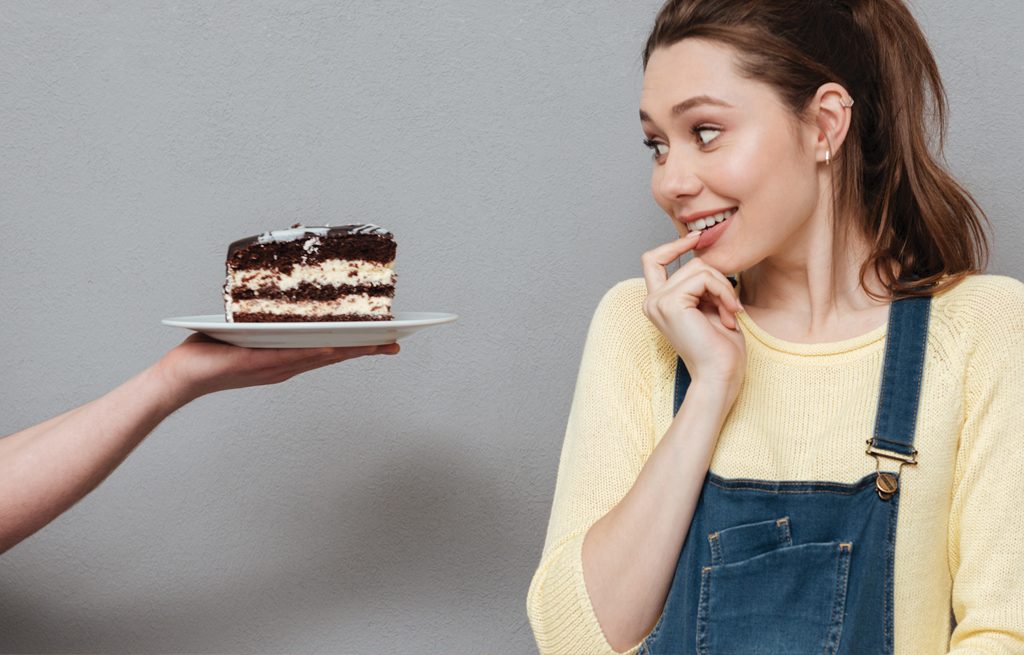Find out the ways you can untangle yourself from the foods you hanker after and stop giving in to those cravings.

Does the mere thought of a chocolate lava cake make you salivate and crave for a slice? Do you live in anticipation of your next bowl of chendol?
Food cravings tend to be associated with pregnant women but, as all of us are aware, they are by no means confined to this group alone.
DECODING CRAVINGS
Cravings often appear to be an urge or impulse that comes on suddenly. Such an impulse can fizzle out on its own if you let it. However, a true craving, describes nutritionist Carrie Dennett in her article in The Washington Post, is “like a slow burn… that will smoulder until you eventually satisfy it”.
While they tend to have a negative connotation, cravings are a normal part of the human experience, expresses personal trainer and fitness nutritionist Rachel Trotta. The problem lies in the object of our cravings. Hardly anyone yearns for celery sticks or a bowl of broccoli. What grips our imagination are foods that are loaded with the trifecta of added salt, sugar and fat, such as calorie-laden potato chips, cakes and biscuits.
Theories abound as to why we crave such foods. One idea is that this desire stems from the body’s need for the nutrients in these foods. For example, you may crave chocolate because your body lacks zinc, which is high in chocolate. Others believe cravings arise from constant deprivation: the more we deprive ourselves of a particular food, the greater our craving.
Trotta traces the craving for calorie-dense food to the days when our cavemen-ancestors had to binge when food scarcity hit. This has resulted in our brain being wired for survival, hence our predilection for cheese, sugar, carbohydrates, fatty meats, fried foods and more. This, combined with our sense of smell, memories of food, and habits, can drive us to crave certain foods and indulge those cravings.
While an occasional indulgence may do you no harm, frequently giving in to your desires could lead to weight gain or the inability to lose weight. This, in turn, may contribute to obesity related health problems. In addition, your lack of self control can cause you to lose self-respect and self-confidence, points out Trotta.
While cravings can be intense and seemingly uncontrollable, there are strategies you can take to keep them in check.
OVERCOMING CRAVINGS Environmental association
If you have come to associate an environment or activity with a specific food — say, popcorn with being in a cinema or goreng pisang at teatime — Dennett advises you to ask yourself, “Am I hungry?”, whenever you have the urge to eat. If the answer is “No”, follow up with, “Why do I want to eat this?” If your answer is something along the lines of, “Because it’s there” or “Because it’s what I always do”, try not having the food to see how it feels.
Distinguish between hunger and craving
It can be difficult to tell cravings from true hunger, especially if you are not attuned to your body’s internal hunger cues, points out Dennett.
Cravings are more specific than hunger. So if you feel you need to eat but do not have a particular food in mind, it is probably hunger. If you are focused on one food, it is very likely a craving. Hunger combined with craving equals harder-to resist cravings, which is a good reason to avoid becoming too hungry. Have your meals at regular times and keep healthy snacks at hand.
Keep a cravings journal
This can help you identify what you genuinely hanker after, suggests Dennett. Instead of a butter cookie, you may need respite from your desk. Instead of half a tub of Cookies ’n’ Cream ice cream, you could be longing for a friendly ear to listen to your problems.
Practise mindful eating
Eating mindfully teaches you to be aware of your eating habits, emotions, hunger and physical sensations. It requires you to be ‘present’ as you eat, slowing down and chewing thoroughly. Doing so enables you to recognise the difference between cravings and hunger, and choose wisely.
Distance yourself from the object of your craving
When you experience a craving, distance yourself from it, suggests health portal healthline.com. Take a stroll or enjoy a bath to shift your mind to something else. A change in environment may curb the craving.
Stay hydrated
According to healthline.com, thirst is mistaken as hunger or craving. If you feel an urge for a specific food, drink a glass of water and wait a few minutes. You may find that the cravingfades, because your thirst was quenched.
Eat more protein
Studies show that eating more protein helps you feel full and satisfied longer, says healthline.com. This reduces cravings and keeps you from overeating.

So the next time you crave for chocolate lava cake or chendol, you can exercise self-restraint and not give in to it.







